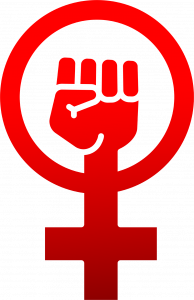Maternal Mental Health Organization Shares Postpartum Psychosis Symptom Checklist in Response to Recent Postpartum Psychosis Tragedies
2020 Mom, a national leader in maternal mental health policy and practice change, shares the importance of detecting postpartum psychosis…
2020 Mom, a national leader in maternal mental health policy and practice change, shares the importance of detecting postpartum psychosis by re-releasing its psychosis symptom list.
The recent tragedies involving Lindsay Clancy in Boston, MA, and Paulesha Green-Pulliam in San Francisco, CA have brought the much-needed discussion about postpartum psychosis and maternal mental health disorders to the forefront of national news.
To address the grave concern and confusion from the public and professional community, 2020 Mom is announcing the re-release of its overview of postpartum psychosis and a psychosis symptom checklist that can help people understand the prevalence, risk factors, and signs and symptoms.
Detection of mental health disorders generally first involves the person experiencing symptoms completing a questionnaire or what is referred to as a “screening tool” about his or her symptoms. Because psychosis involves a break in reality, a person experiencing psychosis may be incapable of completing a symptom screening questionnaire directly which is why there isn’t a psychosis screening tool. Family and those who are in close contact with the mother are often the first to notice behavior changes and should be referring to a symptom checklist.
2020 Mom has developed the Psychosis Overview and Psychosis Symptom Checklist (PSC) to assist families and providers in recognizing psychosis.
“As a perinatal psychiatrist, postpartum psychosis is the hardest, most difficult diagnosis I see. My heart breaks for these two mothers, their suffering, and their families. Tools like the 2020 Mom Psychosis Symptom Checklist are one step toward giving families the information and support they need and deserve.” said Melanie Thomas, MD, a psychiatrist on 2020 Mom’s Advisory Board.
“Working in a safety net setting, it’s critical that I point out, to truly prioritize the well-being of women and children, we must also support women by addressing social determinants of health, like helping them out of poverty and preventing racism,” she said.
Our thoughts are with the Clancy and Green-Pulliam families during this difficult time; 2020 Mom and our partners will continue to develop tools, and policy solutions to close gaps in maternal mental health care.
About 2020 Mom
2020 Mom is working to prevent the suffering of mothers, babies, and families associated with untreated maternal mental health disorders, like postpartum depression. 2020 Mom has driven the national conversation from one centered around raising awareness to one focused on closing gaps in the healthcare delivery system. The organization’s work centers around defining the barriers and opportunities, convening cross-sector change agents, and scaling solutions through policy and practice change.










